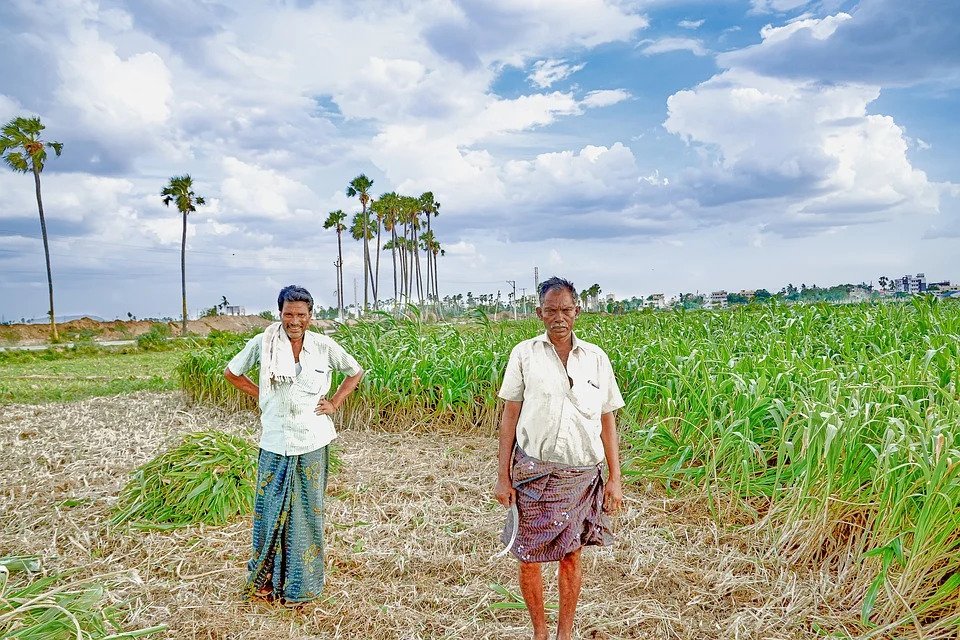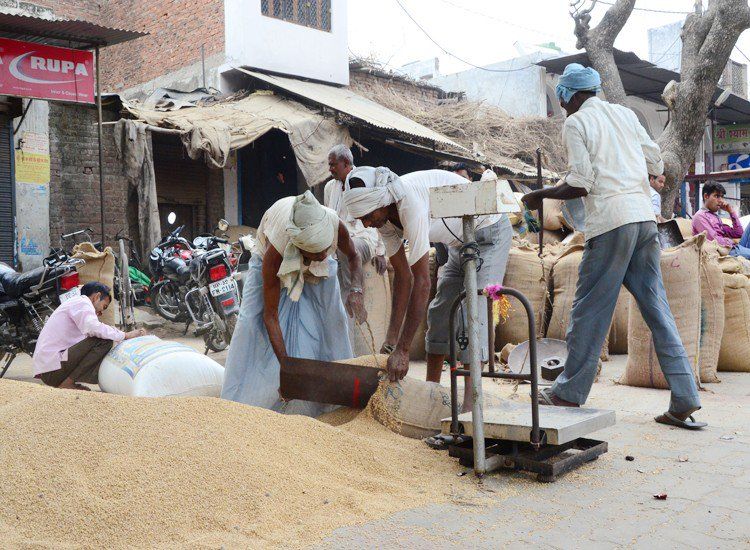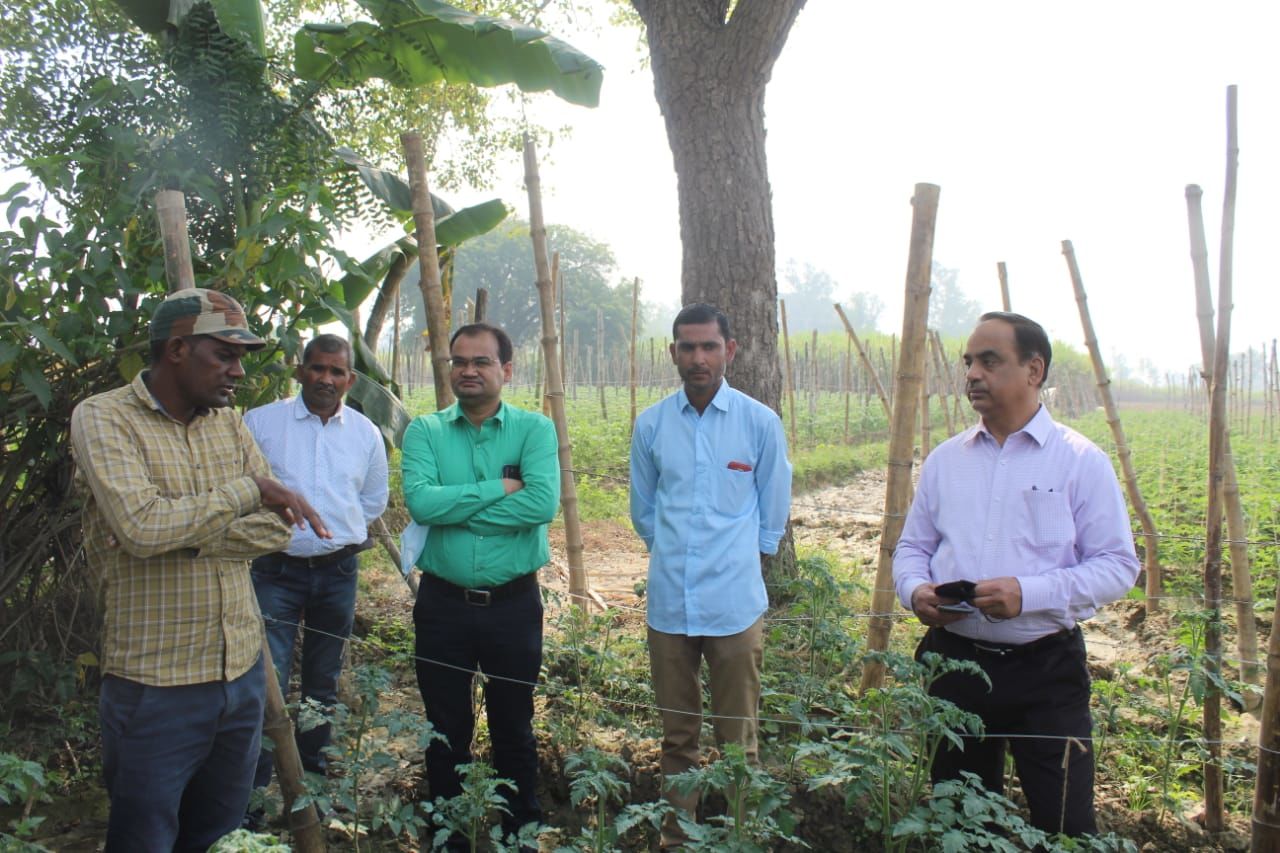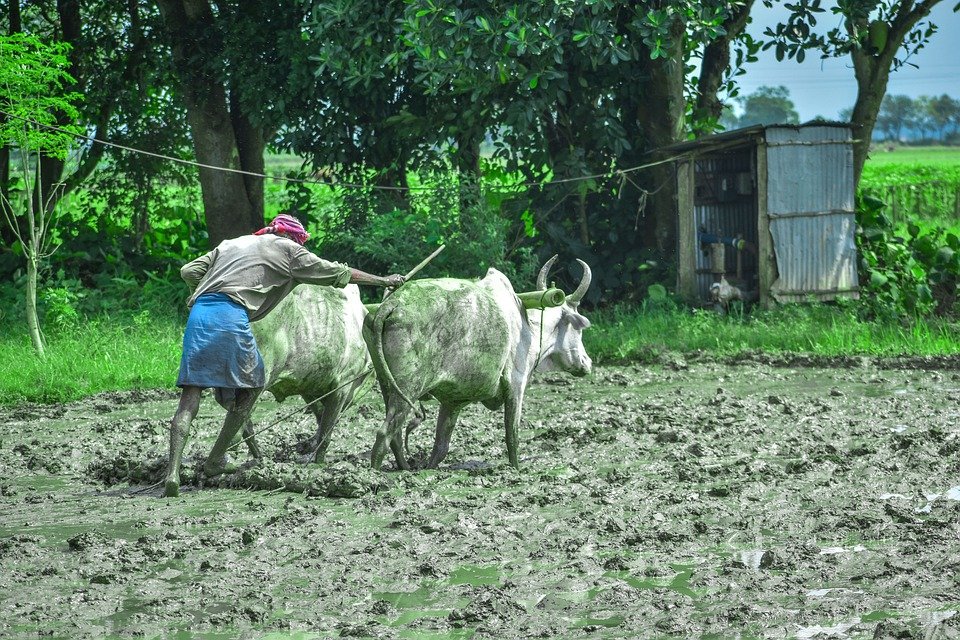Farmers’ protests: Why are small and marginal farmers protesting against the farm acts?
The government says the new farm acts will be beneficial to small and marginal farmers. But, in reality, APMC mandis and MSP have offered protection to this category of farmers, who make up almost 85 per cent of the farming community in India.


Photo: Pixabay
Parijat Ghosh and Dibyendu Chaudhuri
Thousands of farmers from Punjab, Haryana, Uttar Pradesh, Rajasthan and other states are in Delhi to protest against the new farm acts. Almost all farmers’ organisations across the country are protesting too. The farmers say they won’t leave Delhi till the draconian laws are withdrawn. They have been able to draw support from other sections of the society, and a large number of people have expressed solidarity with the farmers on social media.
The government, on the other hand, is claiming that farmers have been misguided by the opposition parties and the new laws are, in fact, beneficial to them.
In reality, what is the plight of small and marginal farmers who make up almost 85 per cent of the farming community in our country? Farmers having less than two hectares (five acres) of land are called small farmers and those having less than one hectare (2.5 acres) are called marginal farmers. However, the average land holding of marginal farmers, who constitute around 65 per cent of total farmers in India, is less than one acre (0.4 hectares) and the average land holding of small farmers is around three acres (1.21 hectares).

What does it mean to have one acre of land? Let’s take the example of paddy-growing areas. The average productivity of paddy in India is 1,000 kilogrammes (kg) per acre. The milling ratio of good quality rice is 65-70 per cent, which means that after processing one will get around 670 kg of milled rice from one acre of land.
In a five-member family in rural India, where rice is the only staple, two kg is the average consumption a day. So, a family, for its own consumption, needs around 730 kg of milled rice a year. Apart from this, in rural areas, the blacksmith, barber, shepherd and the like are paid in kind — in rice growing areas, this is paddy. So, marginal farmers in the country can’t grow enough food even for their own consumption.
In the central Indian plateau area, the average productivity of paddy is much lower — around 800 kg an acre. There, even small farmers can’t grow enough to feed their family for the entire year. Most of these farmers’ land is not irrigated, and they are unable to grow a second crop.
MSP and PDS support the small and marginal farmers
Ninety per cent of these farmers end up buying more grains just for their sustenance, but they also sell a part of their produce for cash needed to buy groceries and other essentials. The minimum support price (MSP) announced by the government, and the government’s procurement system helped these farmers get a moderate price for crops such as paddy and wheat. Otherwise, right after harvesting, the market price falls to such an extent that farmers do not even get the price equal to the cost of production. That’s how the market operates — when many people want to sell the same produce in large quantities, prices fall.
Most of these farmers fall in the Below Poverty Line (BPL) category and get food grains (paddy or wheat) from the Public Distribution System (PDS) at a much subsidised rate. So, they sell paddy or wheat at a higher price, taking advantage of the MSP and government’s procurement system, and then purchase the same at a much subsidised rate from PDS, as they are treated as priority households.
The last BJP government in Chhattisgarh under Raman Singh had been very successful in implementing such dual arrangements, and this reduced the vulnerability of small and marginal farmers in the state to a great extent.

What is the argument in favour of the new laws?
The Union government claims these bills will liberalise the farm sector. Growth in agriculture has been stagnant for a few decades, and liberalising, which means abolishing regulatory laws, will enhance the sector’s growth. For example, as exchange of all products can happen outside the APMC (Agricultural Produce Market Committee) mandis without paying any mandi fees, there will be competition among buyers, and farmers will get the best possible price for their crops. Local entrepreneurs can emerge for trading in agricultural produce. Contract farming will minimise the production risk of farmers as corporates will come in with modern technologies and farmers will get an assured income.
However, let us look at the practical possibilities of how these laws would impact farmers, and precisely why farmers want them withdrawn.
What the farmers foresee
MSP was never a law. However, through notifications, the union government used to announce MSP for 23 commodities across the country. The new law does not abolish MSP. However, this set of laws allows buyers without any regulatory framework to engage directly with farmers to purchase produce outside APMC mandis. In this situation, MSP should have been made into a law — this could have strengthened the bargaining power of the farmer. MSP could have set a standard price from where bargaining might have started. There is more possibility that in the absence of any law around MSP, the farmers stand to lose more.

If small and marginal farmers enter into contract farming, there will be two major impacts on their life. Firstly, farmers’ crop choice gives them six to nine months of food, fodder, fuel and even medicine. In contract farming, the crop choice will be made by corporates looking at market demand. They won’t look at the needs of a farmer household. This will make economically poor farmers more vulnerable.
Secondly, capitalism has a pervasive tendency to organise jobs at lower skill level than the previous one. This process is called deskilling. In factories, this is done by introducing conveyor belts or by the division of labour. In agriculture, it is done by taking away inputs such as seeds, pesticides and fertilisers from the control of farmers to corporations, thereby, enabling them to control agriculture practices.
This process results in farmers not applying their own knowledge and skill of farming. Rather, they follow what is written on the labels of packets of seeds or pesticides. Contract farming will further deskill farmers — everything will be controlled by corporates and farmers will turn into labourers. Gradually, they will look to migrate, losing interest in remaining in a village where they don’t even have control over their agriculture practices — the sense of power they drew as knowledgeable skilled farmers goes. At some stage, the entire small and marginal holdings will be in the hands of a few corporates.
Agricultural produce such as paddy, potato and onions are not going to be considered essential goods anymore, and there will be no limit up to which these can be stocked. The price of paddy, potato, onion and other food items may rise to an extent that the farmer-turned-urban labourer may not be able to buy those food items.

Why are farmers from Punjab and Haryana in the forefront of the protest?
The major crops in Punjab and Haryana are sold through APMC Mandis. Farmers get an assured price, arhtiyas get commission and the state government gets a significant amount of revenue from the transactions. Because of the new laws, these state governments will lose as much as 13 per cent of their total revenue. The arhtiyas, who have a long relationship with farmers and who hand out crop loans and provide assurance of buy-back, will lose their commission.
The farmers apprehend that as the state government will no longer get any revenue, the procurement system at MSP will be dismantled. The farmers will be at the mercy of corporates, who, unlike the arhtiyas, won’t support them in crop production, but rather exploit them outside APMC mandis.
Who has asked for these acts?
Definitely, not farmers! No one has had discussions with farmers’ organisations while drafting these bills. Landless agricultural labourers have been demanding an act for minimum wage in agriculture for a long time. That was never considered. What we have now is a set of laws that will most likely make small and marginal farmers more vulnerable. These acts show the direction towards which our current lawmakers want our country to move. And that direction is more freedom for business houses to enter into agriculture production and trade, which is against the interest of small and marginal farmers.
(The views of the authors are personal)

